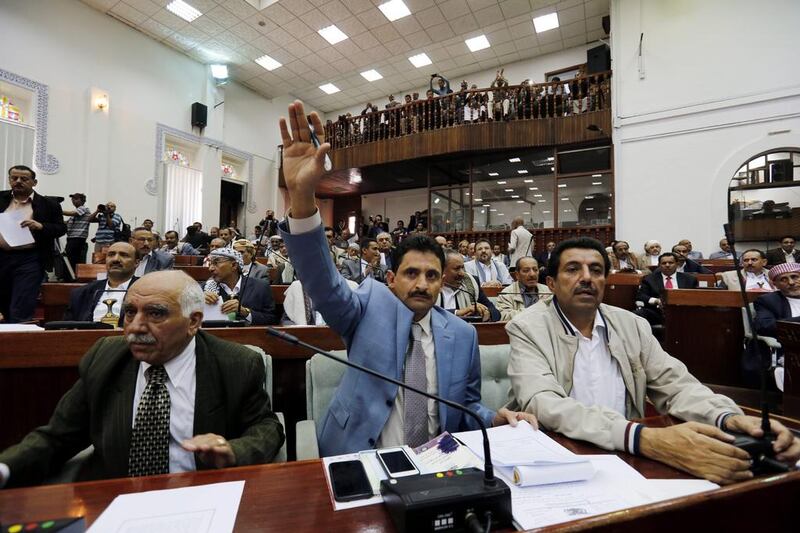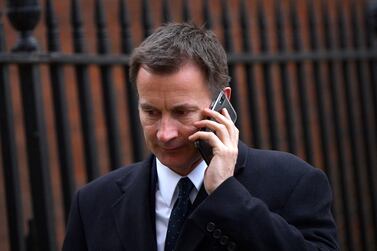Yemen's internationally recognised government is preparing to hold its first parliamentary session since the civil war erupted at the end of 2014.
The war broke out after Iran-backed Houthi rebels took control of Yemeni parliament and the country's capital city of Sana'a. Although parliamentary sessions under a Houthi authority have taken place since the fighting broke out, none have under the government controlled by exiled President Abdrabbuh Mansur Hadi.
A Yemeni MP told The National that the deputy of the parliament, Mohammed Al Shadadi, notified exiled MPs to fly to Riyadh, the Saudi Arabian capital, where the parliament members will be gathering before they fly to join those who are still in Yemen to hold the session.
The deputy did not inform MPs on the venue or the day the session will be held.
"Holding the first session for the parliament is crucial," MP Mohammed Al Hazmi told The National. "Reactivating the parliament will support the legitimacy of the internationally-recognised government and will play an observatory role on the performance of the current government."
Mr Al Hazmi added that the government had secured the required quorum of over 134 MPs for holding the session.
The government's step towards reactivating the parliament comes as the Houthi militia fights to hold a divisive election to fill parliamentary seats held by MPs who have refused to join the rebels and have fled to Sana’a or elsewhere.
The Houthis aim to hold parliament sessions in the occupied capital because the former chairman of the Yemeni parliament, along with many other MPs, still work with them. For the Houthis, holding the sessions from Sana'a makes their coup seem more lawful.
The Yemeni parliament is made up of 301 MPs elected for a six-year term. The election in 2009 was postponed by the then president Ali Abdullah Saleh, who faced a boycott from a coalition of smaller parties after failing to negotiate a new body to oversee the vote.






